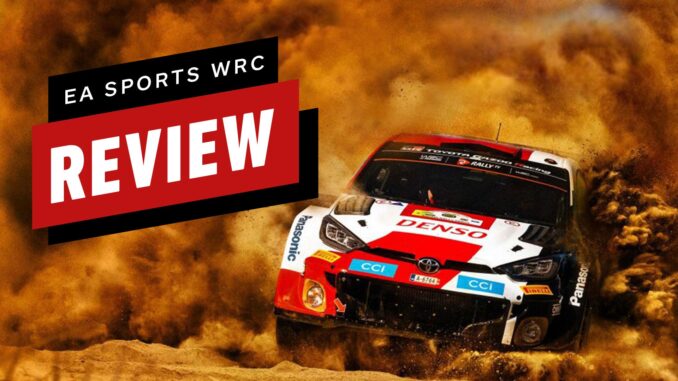
When EA Sports and Codemasters announced their acquisition of the official WRC license, expectations across the sim racing world were sky-high. The partnership promised to deliver the most immersive, realistic, and complete rally experience ever created. With Codemasters’ legacy in racing titles like DiRT Rally and EA’s extensive publishing reach, fans dreamed of a next-generation title that would capture the raw chaos of WRC with precision and polish.
But less than a year after the release of EA Sports WRC, that dream lies in ruins.
What was billed as the definitive WRC experience has, according to many fans and critics alike, fallen drastically short of its promise. Now, the community that once celebrated the potential of this partnership is expressing frustration, disappointment, and even mourning for what could have been a groundbreaking racing simulation.
A Rocky Road From Launch
EA Sports WRC launched in late 2024 to moderate praise and high curiosity. Built on the Unreal Engine instead of Codemasters’ trusted EGO engine, the switch initially appeared promising, offering enhanced visuals and more dynamic environmental effects. Yet, players quickly ran into issues: texture pop-ins, inconsistent frame rates—even on high-end hardware—and a host of gameplay bugs that ranged from frustrating to game-breaking.
Despite multiple post-launch patches, many of these problems persisted well into 2025. The decision to launch without key features like VR support, custom championship modes, and proper multiplayer stability drew criticism. Even more damaging was the communication—or lack thereof—from the development team. Community forums and social channels were filled with unanswered questions, bug reports, and pleas for updates that never came.
The disappointment hits hardest for long-time WRC fans and sim racing enthusiasts, who were hopeful that the official license would finally be put to good use after years of mediocre adaptations. While the DiRT Rally series had earned acclaim, it never bore the full weight of the WRC brand. With the full FIA World Rally Championship rights in hand, EA Sports WRC had a rare opportunity to unite hardcore sim racing with mass-market appeal.
Instead, many feel the game squandered its potential.
“I was ready to dedicate hundreds of hours to this game,” wrote one user on Reddit’s /r/simracing. “I wanted to love it. But the physics feel off, the AI is broken, and there’s been no meaningful communication from the devs in months.”
Streamers and content creators who initially supported the game have largely moved on, citing the lack of post-launch support and diminishing viewer interest. Esports scenes that began to form around WRC events have stagnated due to ongoing technical limitations and balance concerns.
Where Did It Go Wrong?
Some point to EA’s broader corporate strategy, alleging that rushed deadlines and monetization priorities overtook the core design goals. Others believe Codemasters may have been stretched too thin, still juggling other franchises while adapting to EA’s ecosystem. Either way, the disconnect between ambition and execution is evident.
The sim racing community, known for its attention to detail and high standards, has responded accordingly—with disengagement. Racing forums and YouTube reviews are now filled with retrospective comparisons to DiRT Rally 2.0, with many lamenting that the older, unofficial title still delivers a superior experience in 2025.
Despite the disappointment, some in the community are still holding out hope that EA Sports WRC can be salvaged. Suggestions range from a complete overhaul patch to an “Ultimate Edition” re-release that fixes the bugs and delivers on early promises. But with EA remaining largely silent, optimism is fading.
Until meaningful updates arrive—or an entirely new installment learns from its predecessor’s mistakes—EA Sports WRC remains a cautionary tale: a game that had all the licenses, all the tools, and all the talent, but lost control somewhere along the road.
For many fans, the WRC license wasn’t just a marketing point. It was a symbol of authenticity, realism, and passion for rally racing. Now, it stands as a reminder of missed opportunity—a rally car stuck in the mud of its own ambition.
Leave a Reply